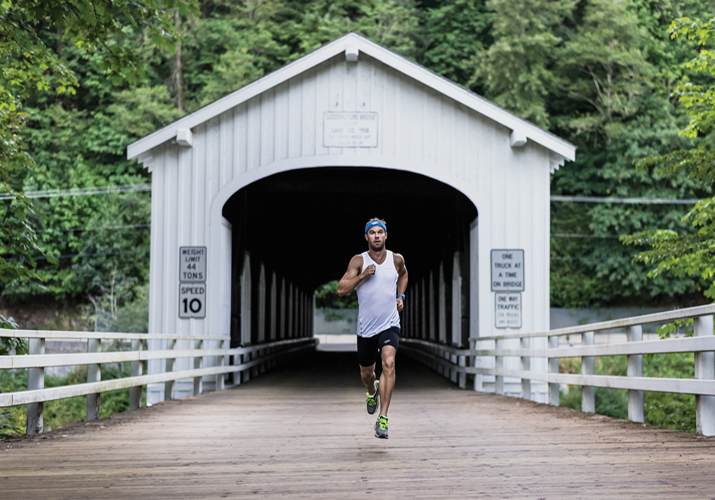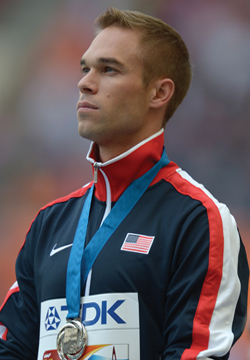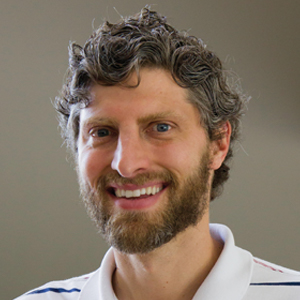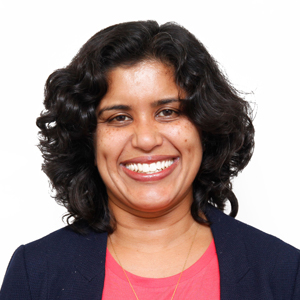Beyond the finish line
If any moment symbolizes Olympic runner Nick Symmonds’ career, it is a roundtable with his fellow chemistry majors during his senior year at Willamette University to discuss their future plans. “At least 80 percent of my class was going on to pursue a Ph.D. in chemistry or a M.D.,” remembers Symmonds. “When they got to me, I said I was gonna stop everything and train for the 2008 Olympics.”
 Symmonds says the demanding workload of a biochemistry major taught him how to overcome challenges.Image courtesy of John Jefferson
Symmonds says the demanding workload of a biochemistry major taught him how to overcome challenges.Image courtesy of John Jefferson
The snickering and eye rolls from his classmates didn’t deter Symmonds. “I knew even if I never made the team, I had to take the risk, or I wouldn’t be able to look back and have been proud of myself for not at least trying,” he says.
The risk turned out to be worth it, as Symmonds has become one of the most successful American runners of his generation. Yet the lessons he learned as a biochemistry major have been an integral part of his success.
Growing up, Symmonds always expected to become a surgeon like his father. “The reason why I was a biochemistry major was because it had the best success rate of getting people into medical school, and that’s what I wanted to do,” he says.
But he found something that attracted him even more than medicine: running. Symmonds had started running competitively in middle school. By the time he graduated high school, Symmonds had won state championships in the 800-, 1600- and 3200-meter races, along with the 4x400-meter relay race.
He decided to enroll at Willamette University, a small liberal-arts school in Salem, Ore. As he writes in his autobiography, “Life Outside the Oval Office,” the track coaches at Willamette insisted that he would “be a student-athlete, not the other way around.”
At first, Symmonds devoted equal effort to his coursework and athletics. (He won the national championship in the 800 for each of his four years at Willamette.) But as Symmonds’ running aspirations grew, the rigors of a science major became too burdensome. “My senior year, I decided that if I was going to have a push for the 2008 Olympics, I really had to reevaluate my priorities,” he says.
That meant his academic performance had to suffer. “I had terrible grades my senior year,” he remembers. But Symmonds says he doesn’t regret taking on the demanding workload of a challenging major like biochemistry, pointing out that “chipping away piece by piece and ultimately coming to the right answer taught me even the most insurmountable challenges can be broken down and tackled eventually.”
Willamette’s faculty noted Symmonds’ ability to put his nose to the grindstone. “I think Nick would have made a very good biochemist,” states Todd Silverstein, Symmonds’ adviser in the chemistry department. “His level of understanding and his work ethic were quite good.” In fact, Silverstein points out, Symmonds “accomplished more on our ongoing enzyme inhibition project than any other previous student, with perhaps one exception.”
Such determination and dedication served Symmonds well on the track, where he became the second-ranked American runner at 800 meters during his senior year in college. His achievements caught the attention of Nike, which signed him to a sponsorship deal that allowed him to focus all of his energy on training after he graduated in 2006. He won the 800 meters at the 2008 U.S. Olympic Trials, earning his ticket to the Olympics.
 Nick SymmondsImage courtesy of Kirby Lee Image of Sport
Nick SymmondsImage courtesy of Kirby Lee Image of Sport
In Beijing, Symmonds ran a disappointing race in the semifinal qualifying round and failed to advance to the final. He spent the next four years determined to make amends. In 2012, Symmonds qualified for the Summer Olympics in London. This time, he advanced all the way to the final, where he ran a personal best time of 1 minute, 42.95 seconds, which would have won a medal at any of the previous Games. But four runners were even faster (including Kenyan David Rudisha, who won the gold medal with a world-record time of 1:40.91), leaving Symmonds without a medal.
“That,” Symmonds admits, “was a hard pill to swallow.” Despite that heartbreak, Symmonds is back at it, currently training to compete at the 2016 Olympics in Rio de Janeiro. “I think that would be a really nice way to round out a perfect decade of running.”
His experiences in Beijing and London have given Symmonds a unique perspective on what it means to be an Olympian. “On one hand, we’re put on a pedestal, and we’re expected to be positive role models and win medals for the country. But,” he adds, “that’s about all that the public wants from us.”
Symmonds rejects the idea that success or failure at the Olympics is all that athletes should be judged by. “Many Olympians have really interesting, diverse backgrounds and are qualified to do many things,” he says.
In 2014, Symmonds published his autobiography and is exploring the world of entrepreneurship after inventing Run Gum, a chewing gum infused with caffeine, taurine and B vitamins. The product “may be the closest I’ve come to actually utilizing my degree in chemistry,” says Symmonds.
Such words would make his former adviser smile. “We take great pride in our graduates,” says Silverstein. “The fact that a few of them go on to be among the best in the world in their field is extra gravy.”
As for his former teammates at Willamette, Symmonds claims that they are equally supportive. “They tell me that they knew I had the talent to be this good all along. That part surprised me!”
Should make for an interesting 10-year college reunion.
Enjoy reading ASBMB Today?
Become a member to receive the print edition four times a year and the digital edition monthly.
Learn moreGet the latest from ASBMB Today
Enter your email address, and we’ll send you a weekly email with recent articles, interviews and more.
Latest in People
People highlights or most popular articles

Finding a symphony among complex molecules
MOSAIC scholar Stanna Dorn uses total synthesis to recreate rare bacterial natural products with potential therapeutic applications.

Sketching, scribbling and scicomm
Graduate student Ari Paiz describes how her love of science and art blend to make her an effective science communicator.

Embrace your neurodivergence and flourish in college
This guide offers practical advice on setting yourself up for success — learn how to leverage campus resources, work with professors and embrace your strengths.

Survival tools for a neurodivergent brain in academia
Working in academia is hard, and being neurodivergent makes it harder. Here are a few tools that may help, from a Ph.D. student with ADHD.

Quieting the static: Building inclusive STEM classrooms
Christin Monroe, an assistant professor of chemistry at Landmark College, offers practical tips to help educators make their classrooms more accessible to neurodivergent scientists.

Hidden strengths of an autistic scientist
Navigating the world of scientific research as an autistic scientist comes with unique challenges —microaggressions, communication hurdles and the constant pressure to conform to social norms, postbaccalaureate student Taylor Stolberg writes.


